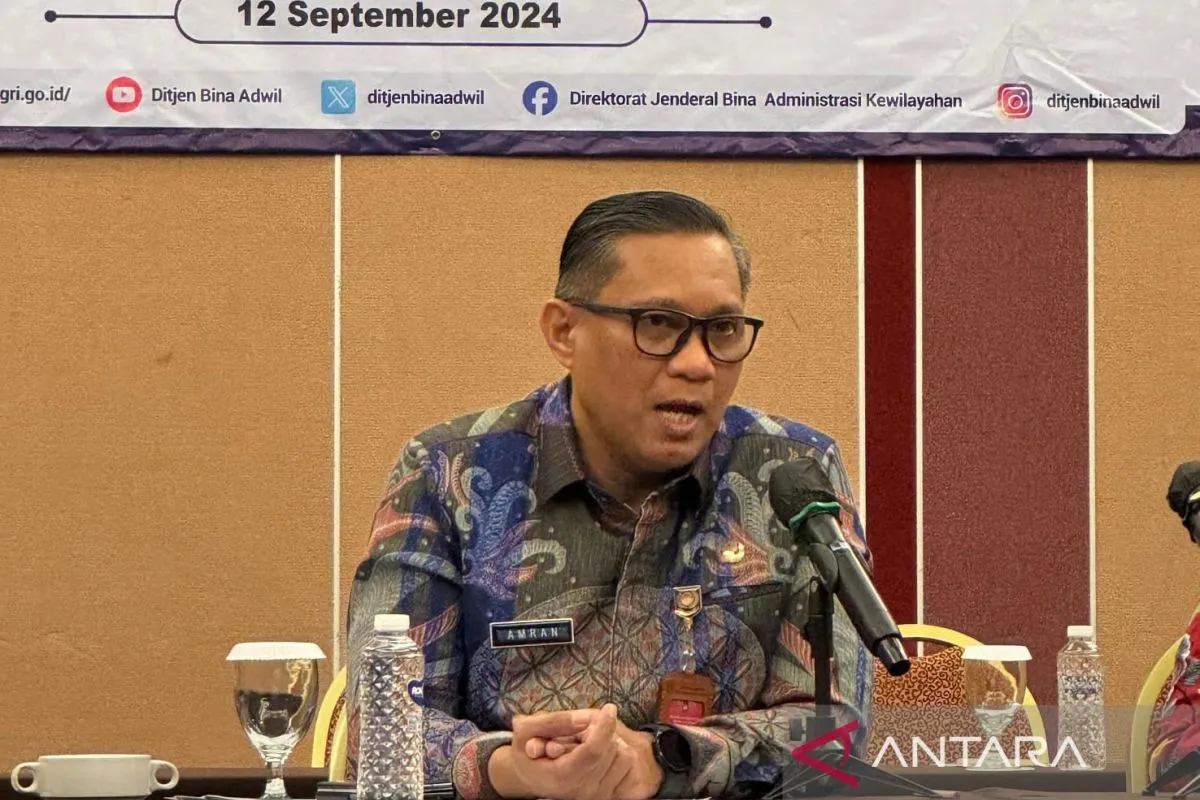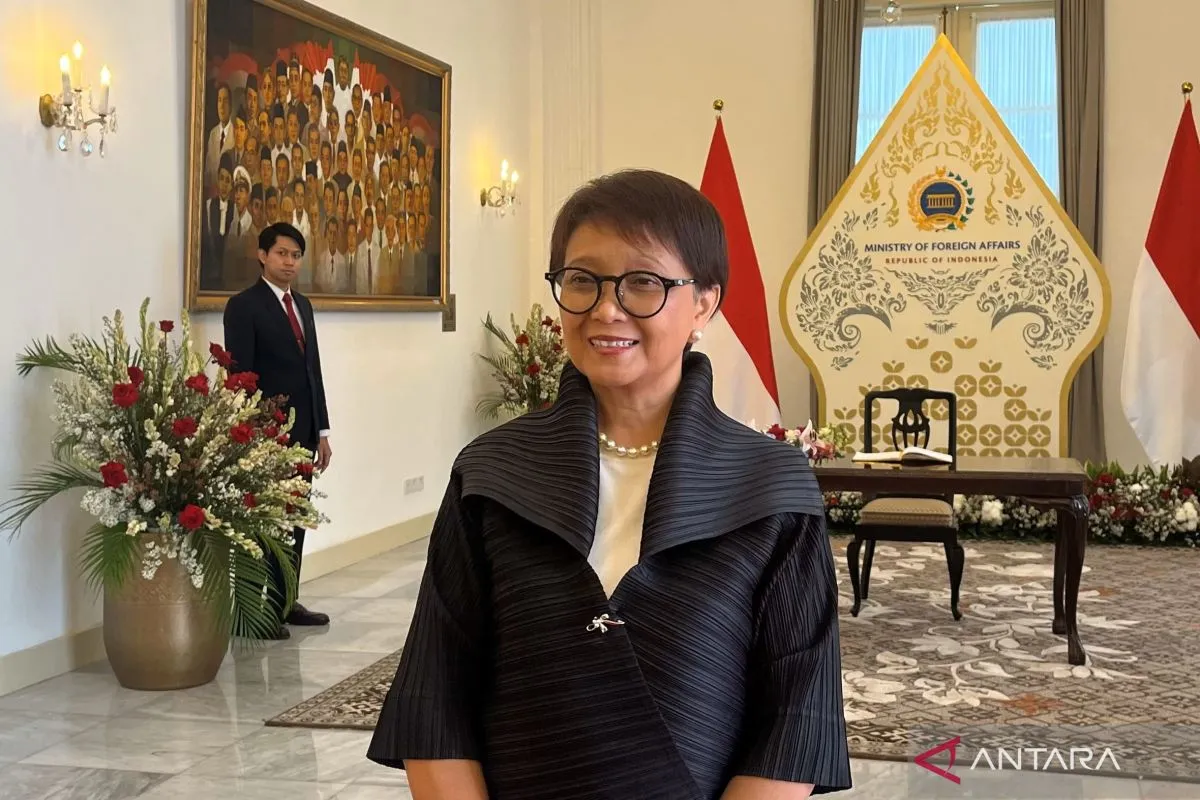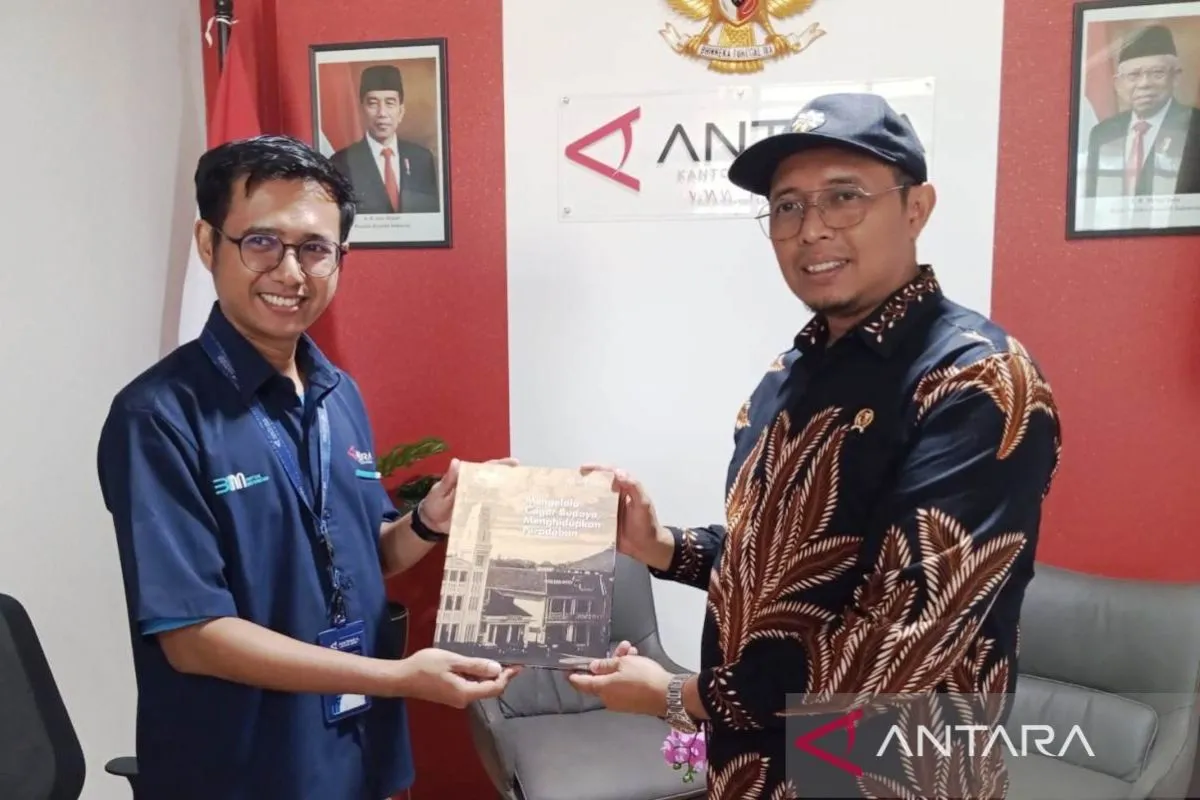Live Streaming
Program Highlight
Company Profile

Ahmad Faisal
September
Home Affairs Ministry of Indonesia collaborates for customary land certification

Regional Administration Development Acting Director General Amran. (ANTARA/HO-Humas Kemendagri)
VOI News, Jakarta: The Indonesian Ministry of Home Affairs is collaborating with several government agencies for the certification of customary lands owned by customary communities across Indonesia.
As reported by Antara News Agency on Saturday (14/9), the agencies working with the ministry include the Ministry of Agrarian Affairs and Spatial Planning, the Ministry of Environment and Forestry, and the Ministry of Marine Affairs and Fisheries.
"By exchanging information and experiences in handling customary land issues, we expect that problems or obstacles in registering customary land can be resolved collaboratively," noted Acting Director General of Regional Administration Development, Amran, in a statement from his office on Saturday. To emphasize the authority of regional governments in determining customary lands, the ministry’s Directorate General of Regional Administration Development held a coordination meeting on Thursday (September 12) to establish a Customary Land Data and Information System.
In addition to sharing experiences, this cooperation aims to ensure that all ministries can align their data on customary land areas owned by customary communities.
Each agency will also synchronize regulations to expedite the completion of customary land certification.
In the statement, Head of the Sub-Directorate of Customary Land and Communal Rights of the Ministry of Agrarian Affairs and Spatial Planning Setyo Anggraini highlighted the myriad benefits that customary communities stand to garner if they certify their customary land. She noted that certification will provide legality for their land, thereby reducing future disputes. Furthermore, it will strengthen the communities' position in the event of any land-related issues arising in the future.
“With this certification, the government believes that the customary communities' rights to land ownership will remain guaranteed, which represents a form of the government's recognition of the existence of customary communities in the country," she pointed out.
September
Minister Retno Marsudi becomes first special envoy of UNSG from Indonesia

Archives - Indonesian Minister of Foreign Affairs Retno Marsudi when met at the Pancasila Building in the Indonesian Ministry of Foreign Affairs complex, Jakarta, Wednesday (8/21/2024). Jakarta/Nabil Ihsan.
VOI News, Jakarta: Indonesian Foreign Minister Retno Marsudi underlined that her role as United Nations Secretary-General (UNSG) Antonio Guterres' special envoy for water affairs marks her as the first Indonesian to be appointed as special envoy to the UNSG.
"This appointment is the first time (that) an Indonesian has been trusted to become the special envoy of the UNSG," the minister noted in a broadcast by the Ministry of Foreign Affairs via the YouTube platform, monitored online on Friday (13/9).
As reported by Antara News Agency on Saturday (14/9),Minister Marsudi considered the appointment to be a matter of great honor for herself and Indonesia, especially since she is also the first UNSG Special Envoy on Water to the UNSG, with the position being a new one.
Marsudi further conveyed her decision to accept the new mandate had been made in consultation with President Joko Widodo, who gave her blessings to carry out the assignment at the UN level.
"President-elect Prabowo Subianto also gave his full support for this appointment," the minister pointed out.
Minister Marsudi stated that she would take on her new role on November 1, 2024, after having fulfilled her responsibilities as foreign minister in President Jokowi's government.
The minister ensured optimally tapping into her experience as a diplomat spanning almost four decades, including as foreign minister for 10 years, to carry out the international assignment.
Several tasks that Marsudi would carry out as UNSG's special envoy include strengthening partnerships and joint efforts to advance the world's water agenda, including following up on the results of the 2023 UN Water Conference.
Moreover, she is tasked with enhancing global cooperation and synergy in international processes to support international water targets, including the Sustainable Development Goal (SDG) 6.
Marsudi also shoulders the responsibility of championing water issues to make them a major political agenda both within and outside the UN, as well as mobilizing action and funding sources to address the global water crisis and encourage the fulfillment of global water targets.
September
Minister Sumadi calls for unified effort in developing Indonesia's transport

Autonomous rail transit (ART) was featured at a state event on August 17, 2024, in Nusantara, North Penajam Paser District, East Kalimantan Province. ANTARA/Nyaman Bagus Purwaniawan/aa.
VOI News, Jakarta: Indonesian Transportation Minister Budi Karya Sumadi has emphasized the importance of synergy and collaboration among all regions in building Indonesia's transportation system to ensure its effective and integrated development.
"Indonesia needs connectivity that reaches not only urban areas but also rural areas, coastal areas, valleys, and mountains," Minister Budi Karya Sumadi, according to a statement released by his ministry on Friday.
As reported by Antara News Agency on Saturday (7/9), speaking at the Hub Talks event titled "Online Transportation Paradigm: Integrated and Online-Based," Sumadi highlighted the need for cooperation between the central and regional governments as well as all transportation sector stakeholders to advance transportation development throughout the country.
Moreover, Minister Sumadi noted that over the past decade, transportation development has followed an Indonesia-centric approach.
"We have been instructed by the President not to be Java-centric, but to focus on Indonesia-centric development," he noted.
During the same discussion, Home Affairs Minister Tito Karnavian emphasized that regional leaders must shift their mindset and plan beyond their term in office.
Karnavian underscored that effective and efficient transportation development must be sustainable.
"We need to encourage governors and other regional leaders to adopt a long-term development mindset," he said.
He also emphasized that it is crucial for transportation systems in all regions to keep pace with the latest technological advancements and environmentally friendly technologies.
"I hope our public transportation can be high-tech, sustainable, environmentally friendly, effective, efficient, safe, and affordable for the community," Karnavian stated.
September

Head of the Antara East Kalimantan Bureau Imam Santoso (left) handed over a book to the Head of the Presidential Communication Office, Hasan Nasbi, at the LKBN Antara office in Nusantara, Friday (September 6, 2024). (ANTARA/M Ghofar/rst)
VOI News, Jakarta: The newly formed Presidential Communications Office started surveying land in Indonesia's new capital city (IKN) Nusantara to build its office, along with other ministries and institutions.
"We have surveyed several locations in IKN. There are several suitable locations, but we must ensure it first and then propose the idea," Head of the Presidential Communications Office Hasan Nasbi stated on Friday (6/9).
As reported by Antara News Agency on Saturday (7/9), while surveying the office's construction location, Nasbi and his entourage also visited several locations in IKN, including the Presidential Palace, the Core Government Center Area (KIPP), reservoirs, and the State Civil Apparatus (ASN) housing.
When asked about the duties and functions of his new office, Nasbi explained that his office serves to bridge communication between the president and the public on information related to presidential policies, various programs being implemented, and others.
"We act as a bridge. The president cannot meet the media every day. However, there may be some questions that we cannot answer, such as political issues that must be answered directly by the president," he pointed out.
Moreover,Nasbi explained that his inauguration by President Joko Widodo to take office on August 19 was meant for the remaining 2019-2024 term. Thus, his side immediately took various actions, such as preparing the establishment of an office, organization, and others.
"In the future, after being inaugurated by the new president (Prabowo Subianto), we will immediately work to oversee eight missions and 17 programs, including free lunch and milk in schools and Islamic boarding schools and nutritional assistance for toddlers and pregnant women," Nasbi conveyed.
After surveying the land for the construction of the Presidential Communications Office, Nasbi and his entourage visited the Command Center, a working space for state-owned media companies, Perum LKBN ANTARA, RRI, and TVRI in IKN.

